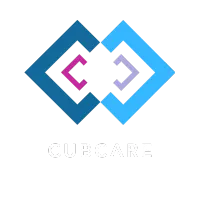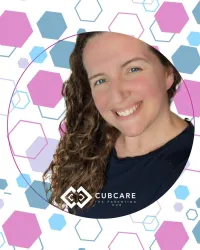We're an award winning Antenatal and Postnatal Education Platform 2025!
(read more here)
CubCare blogs.
From early pregnancy to newborn development.
Advice to help through pregnancy, birth and childhood.
BLOG
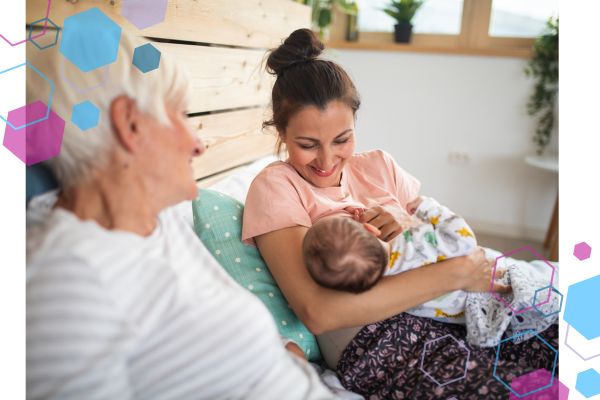
Grandparents’ guide to modern maternity care: why birth looks so different now
"When you’ve lived through something as personal as birth, your memory becomes a kind of internal guidebook. You might not even realise you’re comparing until a comment slips out. But each comment chips away at your child's confidence - even in adulthood." - Jilly Clarke
If you gave birth a few decades ago, you probably remember every moment. The bright lights. The smell of the ward. The nurse who told you when to push, or the doctor who decided when labour was “taking too long.”
You might assume things have moved on — that birth today is softer, calmer, and more personalised. But for most families, that isn’t the reality.
Birth in the UK is now more medicalised than ever before. Around one in four births are by emergency caesarean section. One in three are induced. Midwives are stretched, continuity of care has been lost, and many maternity units are under severe staffing pressure.
This doesn’t mean care is unsafe — but it does mean it’s system-led, not person-led.
And that’s why the new generation of parents are preparing differently. They aren’t planning for an ideal birth; they’re preparing to navigate a complex, medicalised one.
Why modern birth feels so medical — and why your child might be preparing differently
Today’s maternity care is delivered by brilliant professionals working inside a rigid structure. That structure values efficiency, policy and documentation — not always physiology or patience. Student midwives are working inside this structure too, not getting the breadth of experiences that may have previously been seen. Person-centred skills are getting lost within the NHS policies.
Routine monitoring, time limits on labour, early inductions: these are often applied as standard practice, not because they’re always clinically necessary, but because the system needs to keep moving, and recording.
For grandparents, this can be confusing. You might see your child questioning induction, requesting mobility, or hiring a doula and think, “Why make it complicated?”
But they’re not rebelling — they’re responding to the reality that modern birth requires proactive understanding. Modern maternity care requires families to understand the system in order to navigate it safely and confidently.
They’re preparing proactively because the landscape has changed — not because they doubt the professionals, but because they need to be informed inside a system that cannot always offer individualised care.

The rise of independent antenatal education — and why it matters for grandparents
Years ago, most people learned about birth through hospital classes or conversations with a midwife. Those sessions covered the basics, but they didn’t always explain why things happened, or how much influence the maternity system has on the course of labour.
Today, independent antenatal education exists because families need information the NHS doesn’t have time or capacity to provide. Not because professionals don’t care, but because the system is stretched to its limits.
Independent educators teach the things that transform birth experiences:
• what physiological labour actually looks like,
• how hormones and environment affect progress,
• how policy sometimes diverges from evidence,
• and how to make decisions confidently when pressured or overwhelmed.
This isn’t about “going against” the NHS — it’s about helping families understand the system they’re giving birth in. It gives them the tools to navigate a highly medicalised environment without losing their voice or their confidence.
For many expectant parents, an independent antenatal course is the first time anyone explains why labour slows, why inductions are so common, or how to advocate respectfully when choices aren’t being fully explained.
And when you understand this as a grandparent, everything clicks into place.
You stop seeing birth plans as idealistic wish lists — and start recognising them as practical safeguards for autonomy, designed to protect choice and reduce unnecessary intervention in a system that often defaults to policy over personalisation.

When maternity guidelines aren’t always good evidence — what grandparents should know
It’s easy for grandparents to assume that NHS or NICE guidelines reflect the best science. Sometimes they do. But many policies in UK maternity care are based on limited or outdated evidence — and some will sound very familiar.
The “one centimetre per hour” rule, for example, comes from a 1950s study of medicated, immobilised women in a completely different birth environment (Friedman, 1954). Yet it still influences decisions about “slow labour” today.
Induction at 39 weeks is now routinely offered, even for healthy pregnancies, despite mixed evidence on outcomes — and despite induction rates continuing to rise in NHS statistics.
Restrictions many grandparents remember — not eating, not drinking, not moving — were originally about anaesthetic safety. Research now shows that movement, hydration and upright positions support comfort and progress, but the old rules still shape practice in many hospitals.
These procedures haven’t changed as much as you’d expect.
What has changed is that today’s families have access to better information. They’re questioning policies because understanding the evidence helps them stay safe in a system where routine and reality don’t always align.
(References: Friedman 1954; Zhang 2010; NICE CG190; NHS Maternity Statistics 2023–24.)
Why grandparents’ understanding of modern birth matters
When someone prepares for birth today, they’re doing something most previous generations never had the space, opportunity or information to do; they’re going in with real knowledge. About their body. About the system. About what influences safety and comfort.
So, you might see them asking for more time.
Or questioning an induction.
Or choosing a planned caesarean because it’s what feels safest for them.
None of this is overthinking. None of it is “making a fuss.”
It’s simply what happens when people finally have access to information that wasn’t available decades ago.
And when grandparents understand this — when you recognise that preparation today is about navigating a stretched, fast-paced maternity system — your support lands in a completely different way.
You become the person who says,
“I can see why you’re asking these questions — and I’m glad you are.”
That kind of understanding changes the whole atmosphere around birth.

Why grandparents can encourage their family to learn, ask and question
One of the most helpful things a grandparent can do is gently encourage their son or daughter to learn about birth in more depth — not because the system is unsafe, but because it’s busy, pressured, and doesn’t always have time to explain the “why” behind every decision. Sometimes people go along with a suggestion simply because it’s offered, not because it’s the only option. Your encouragement can make all the difference.
You might say things like:
“Have you had the chance to look into that a bit more?”
“Do you feel clear on your options?”
“If you want to talk it through, I’m here.”
This isn’t about steering them. It’s about reminding them that they should understand the system they’re giving birth in, and they should feel able to question anything that doesn’t sit right. When that reassurance comes from a grandparent — calm, steady and without pressure — it gives them the confidence to slow down, get informed, and make decisions that genuinely feel right for them.
Birth then and now — what’s really changed between generations
When you gave birth, most people followed what they were told because that was the culture: trust the professionals, don’t ask too many questions, keep your head down and get through it. There often wasn’t space to challenge anything, or even to understand why certain decisions were being made.
Your son or daughter isn’t trying to undo that. They still respect the professionals caring for them — but they also know that policy doesn’t always match evidence, and that care can look very different depending on who’s on shift, how busy the unit is, or what the local guidelines say that day.
That isn’t defiance.
It’s awareness.
It’s the same protective instinct you had — wanting the safest, calmest birth possible — shaped by a maternity system that now relies heavily on protocols, monitoring and time pressures. They’re questioning because the landscape has changed, not because their trust has vanished.
And when grandparents understand that, the whole conversation around birth becomes gentler, clearer and far more supportive.
Supporting your family through today’s maternity system
You don’t need to know every statistic to make a difference.
You just need to know that the system your child is giving birth in isn’t always designed around them — and that the education they’re seeking is a form of advocacy, not indulgence.
Ask them what they’re learning. Ask how you can help them protect that space when they’re tired or overwhelmed. And when you hear something that sounds unfamiliar, get curious before you compare.
That curiosity is what keeps families connected — and what helps the next generation of parents feel strong, seen, and supported.
If you’d like to understand more about what’s changed — and how to be the kind of grandparent who truly supports informed birth — the CubCare Grandparents Course will walk you through it.
It’s clear, evidence-based, and created to help you feel confident in today’s maternity landscape.
Learn more about supporting birth choices as a Grandparent.
The CubCare Grandparents Course is part of our award winning collection of Antenatal and Parenting online courses, and explores exactly this — how to stay informed, confident, and genuinely helpful during pregnancy, birth, and early parenthood.
It gives you the latest evidence on modern maternity care and shows you how to offer practical, emotional, and non-judgemental support — while still honouring your own experiences.
Explore the CubCare Grandparents Course
Refresher Antenatal Course in person
Refresher Antenatal Course online
Birth Partner course (included in our Antenatal course)
Antenatal Course in person
Antenatal Course online
Easily navigate to our most popular Blog categories
Download our Freebies
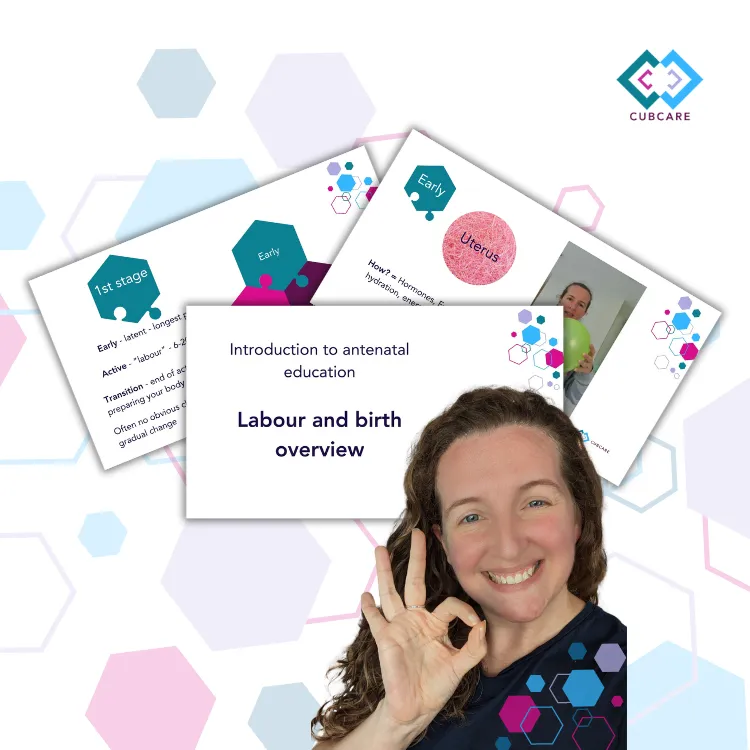
Labour and Birth
Watch our introduction to antenatal education webinar, our labour and birth overview - to start your antenatal education journey. Understanding the process, and what you can do to influence it.

Pregnancy Planner
Free Pregnancy Planner to help you prepare for a little one. Prepare your body, your mind, your finances and your home. Get organised, feel good and prepare for an active, positive birth.
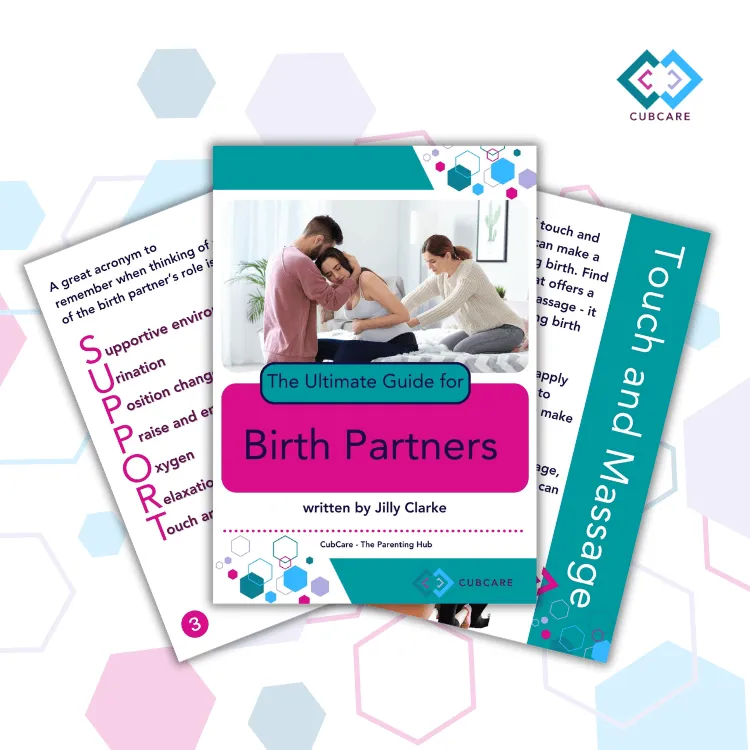
Birth Partner Guide
Your ultimate guide to being the best birth partner during pregnancy, birth and recovery. Learn what you need to do, and what you need to learn to be the best birth partner possible.
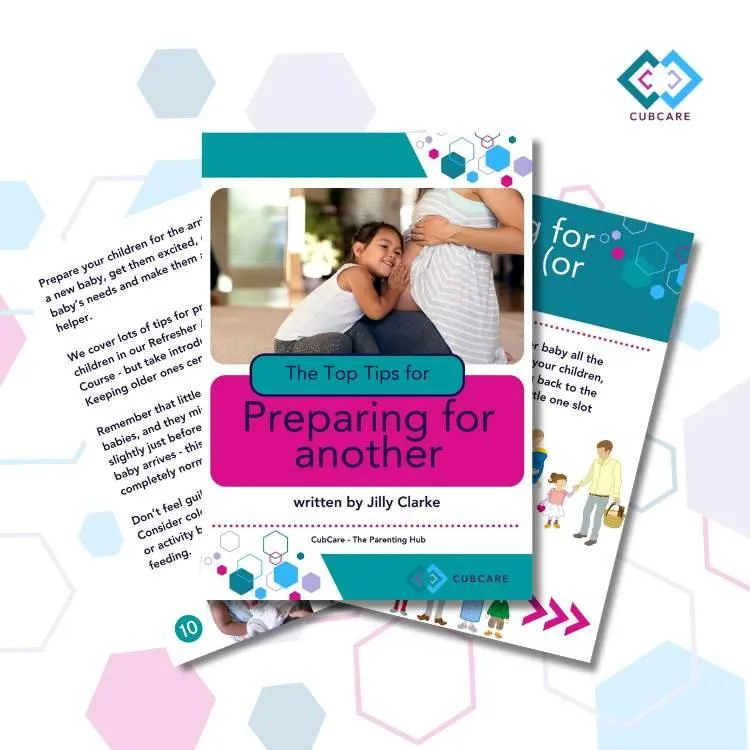
Expecting Again Guide
Your ultimate guide to preparing for another birth and an extra baby. Our top tips for navigating pregnancy and birth, and helping your older ones to transition into their new role as a big sibling.
Based in Welwyn Hatfield, offering local pregnancy support and doula services across Hertfordshire: St Albans, Hatfield, Welwyn Garden City, Potters Bar, Stevenage, Harpenden, Hitchin, Barnet, Mill Hill and surrounding areas.
Online antenatal and postnatal education available UK-wide.
© Copyright 2025 CubCare The Parenting Hub. CubCare is operated by The Birth and Baby Company Ltd. Company No. 15655287
Privacy Policy | Terms & Conditions | Medical Disclaimer | Inclusivity and Accessibility
